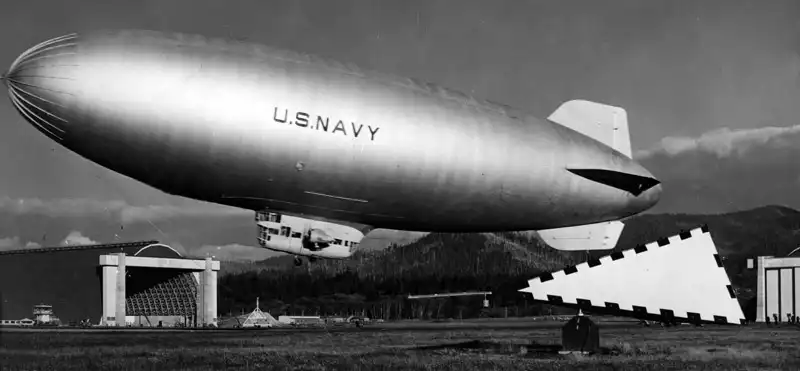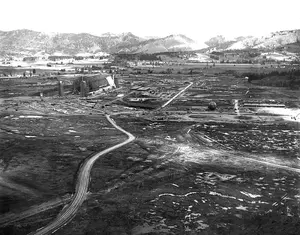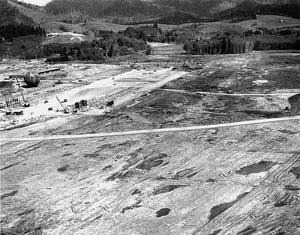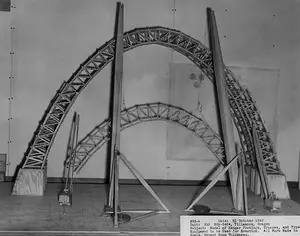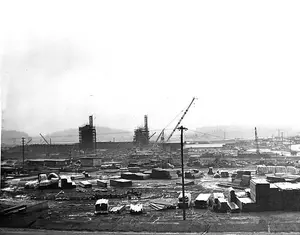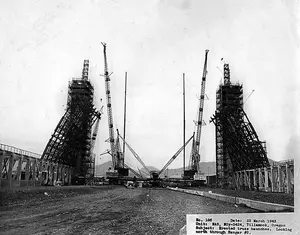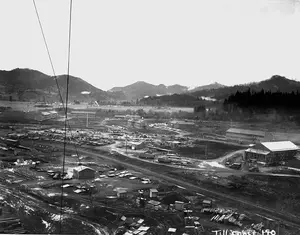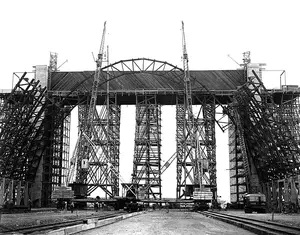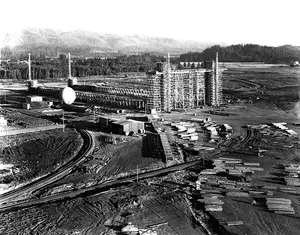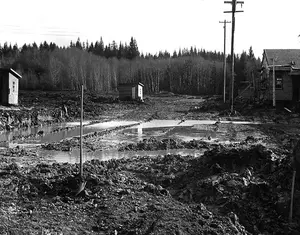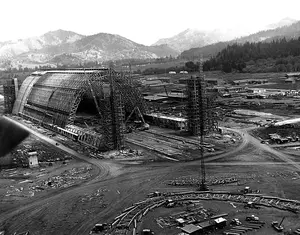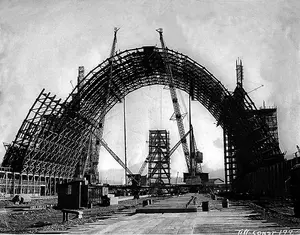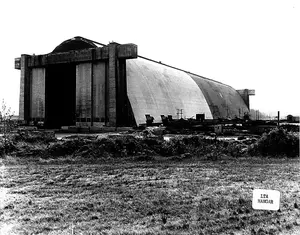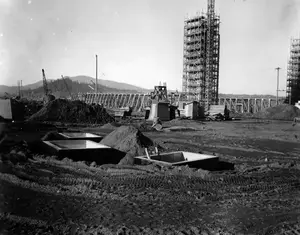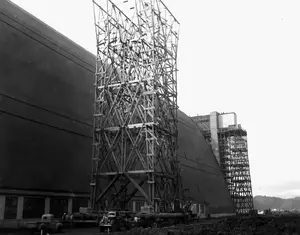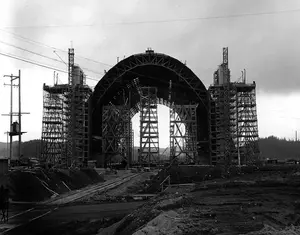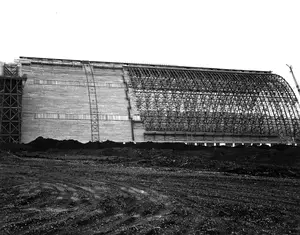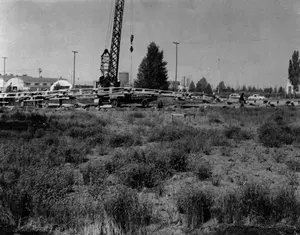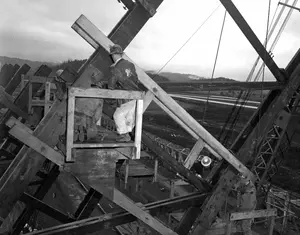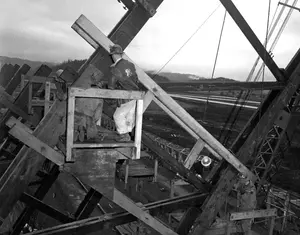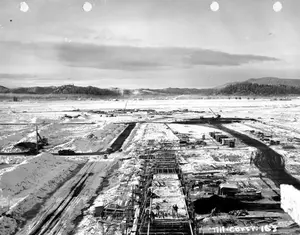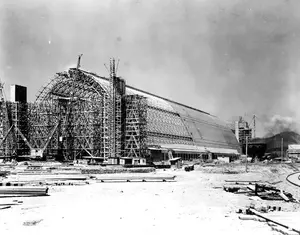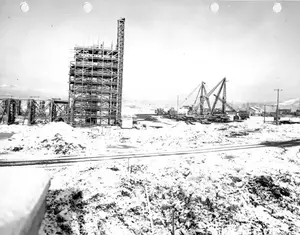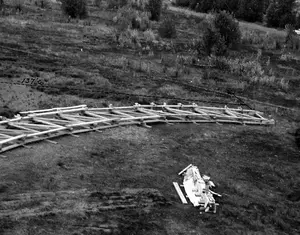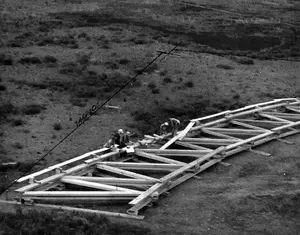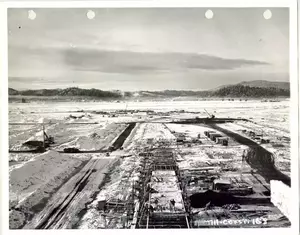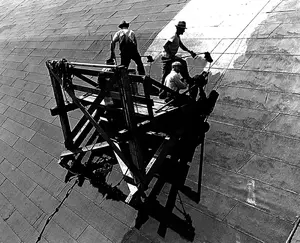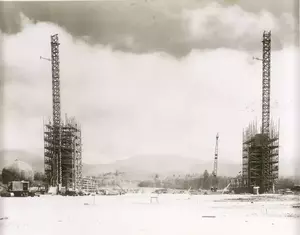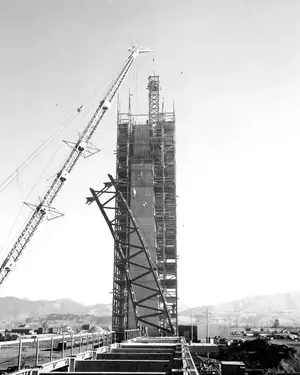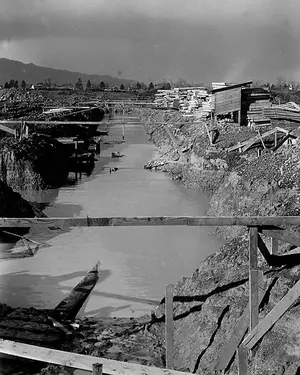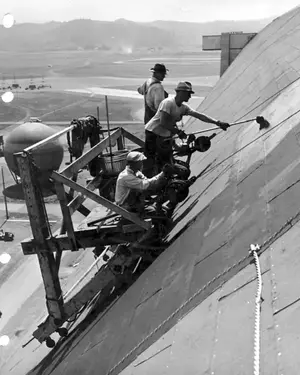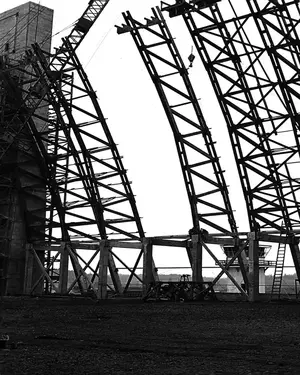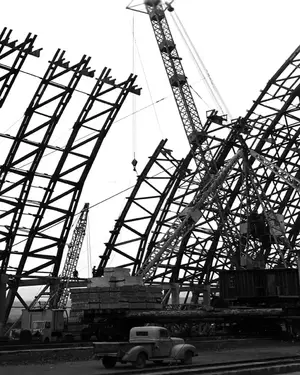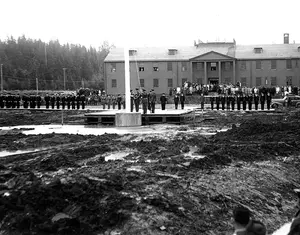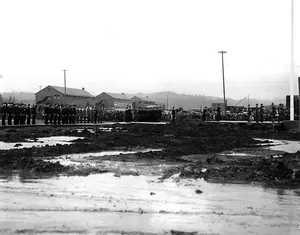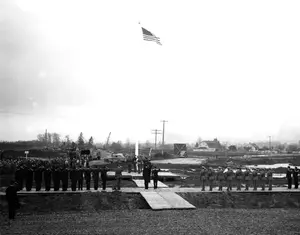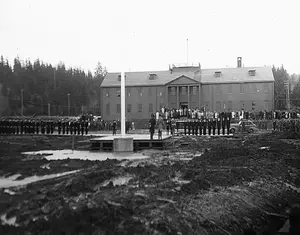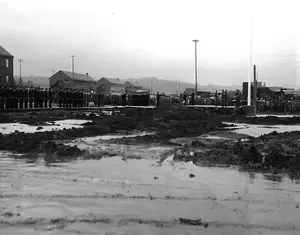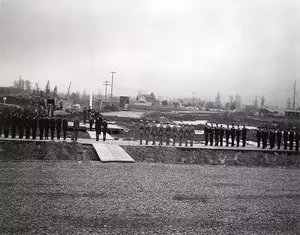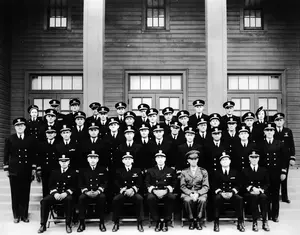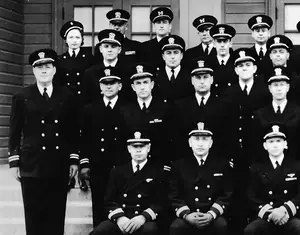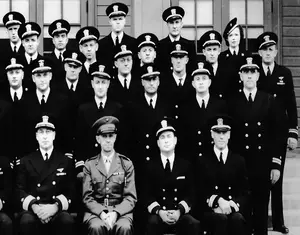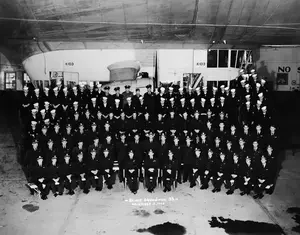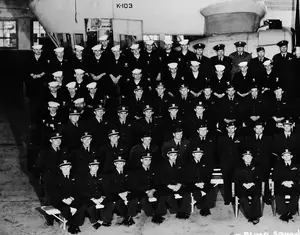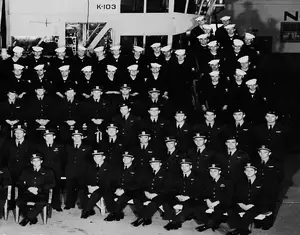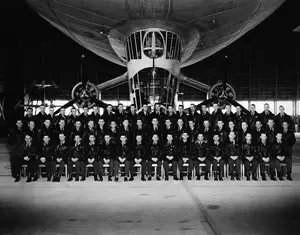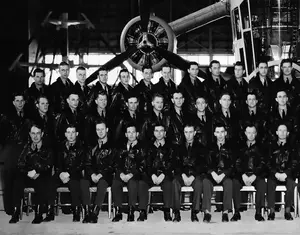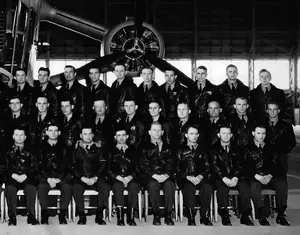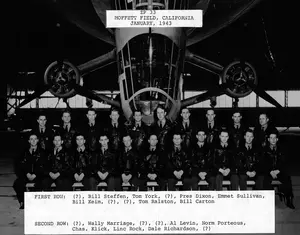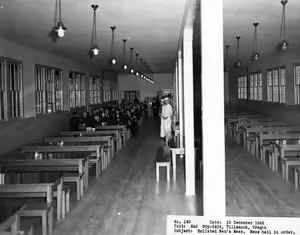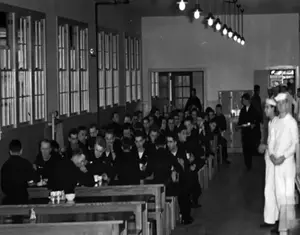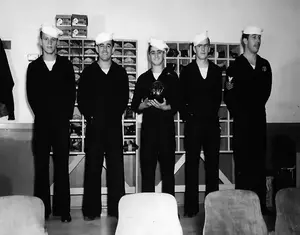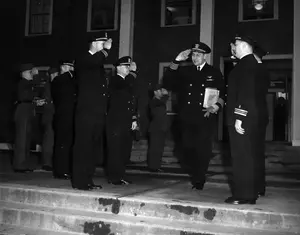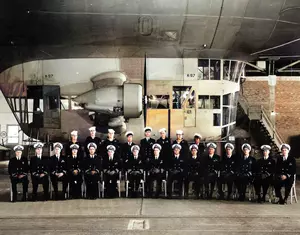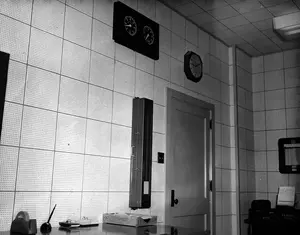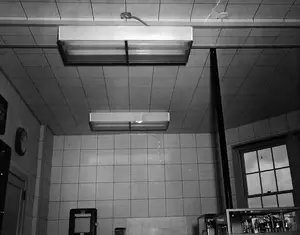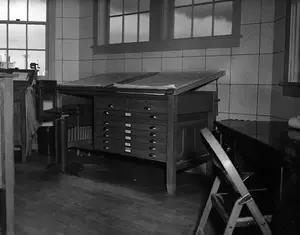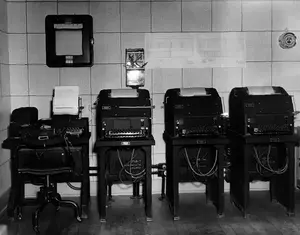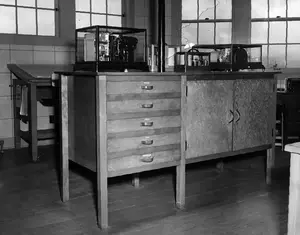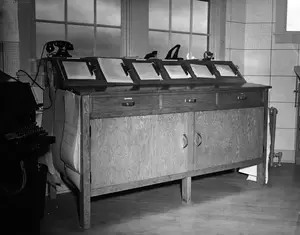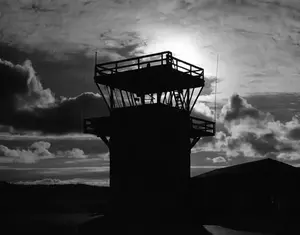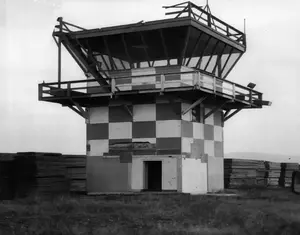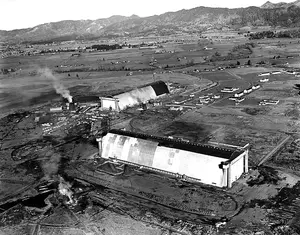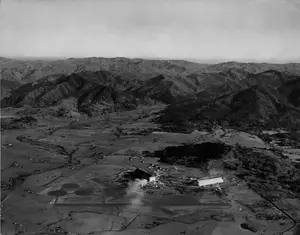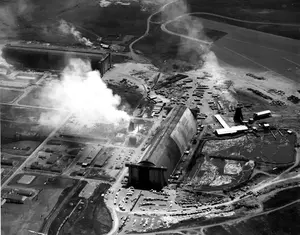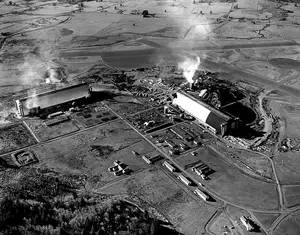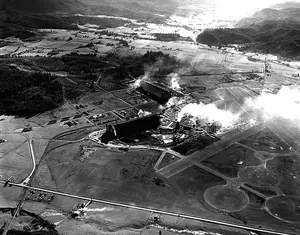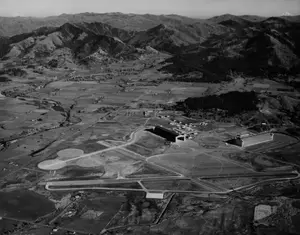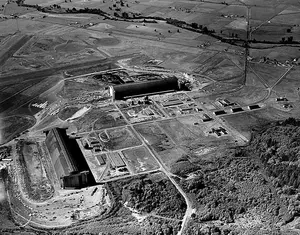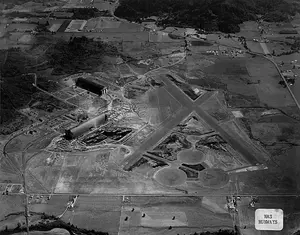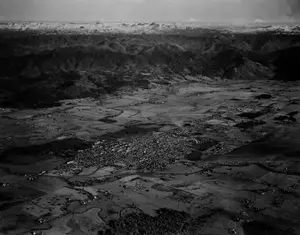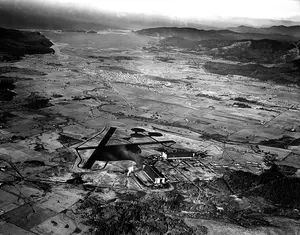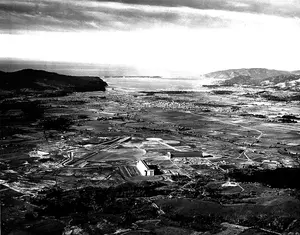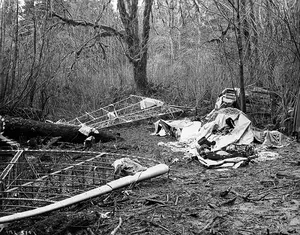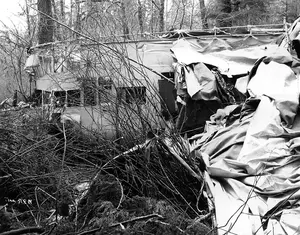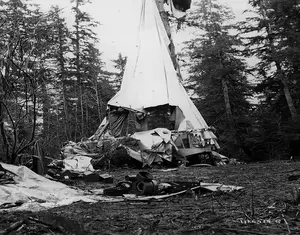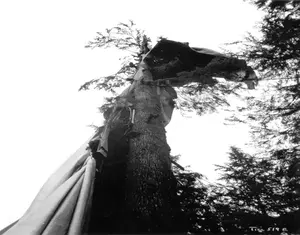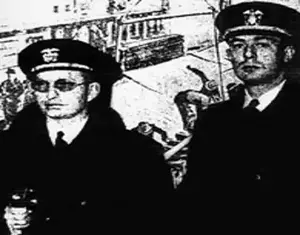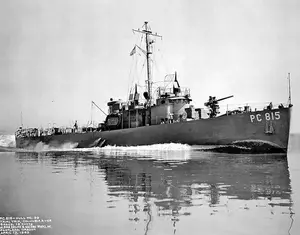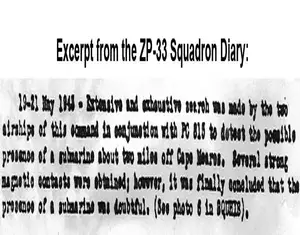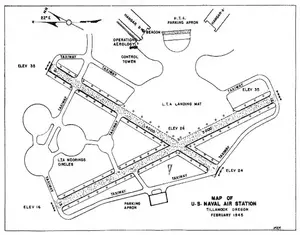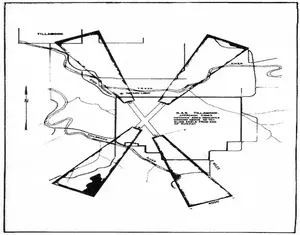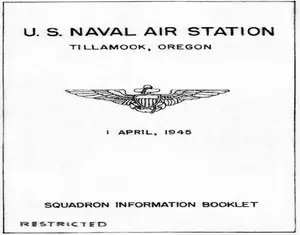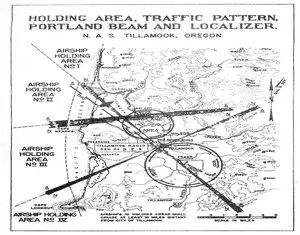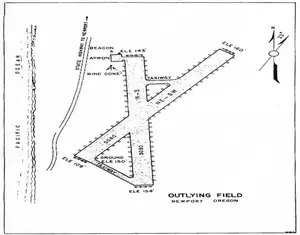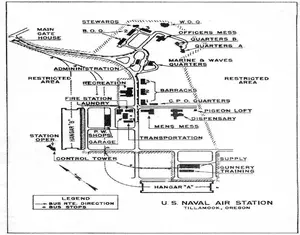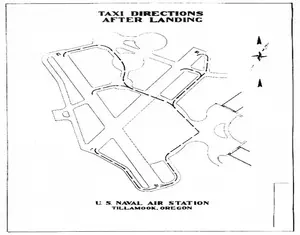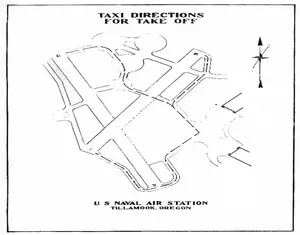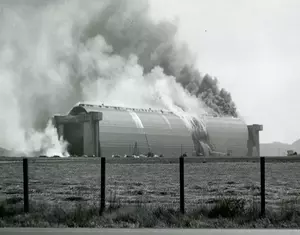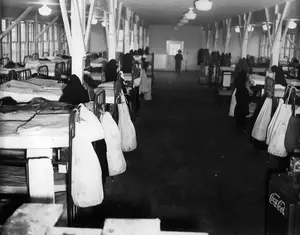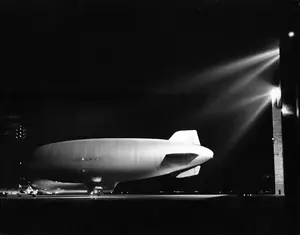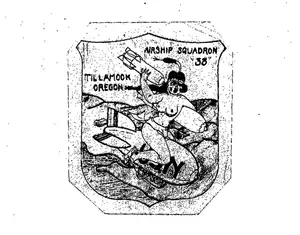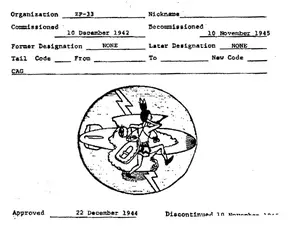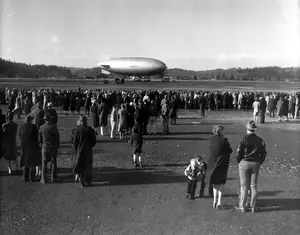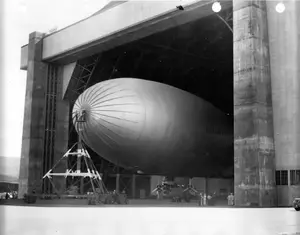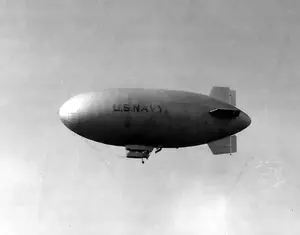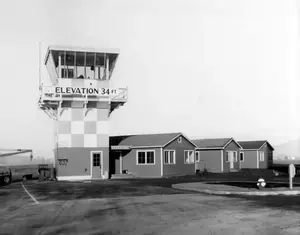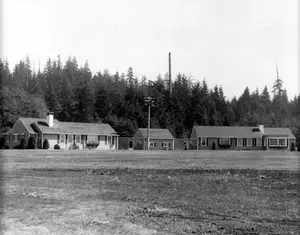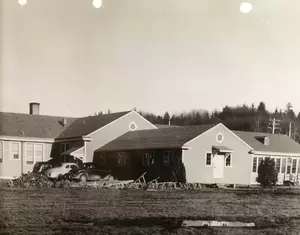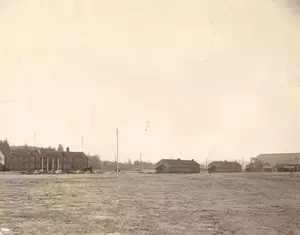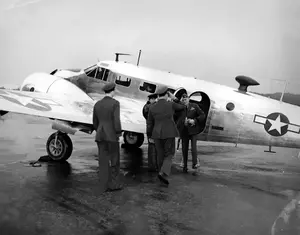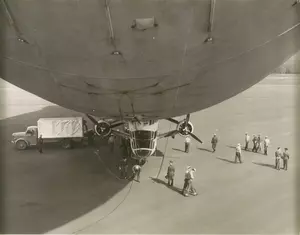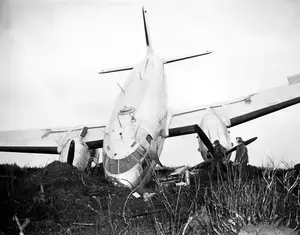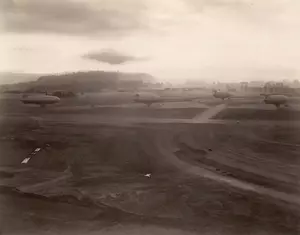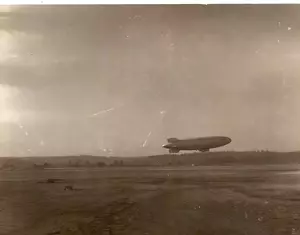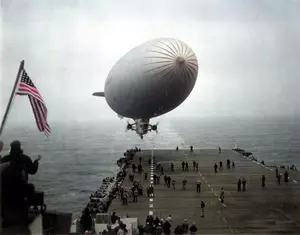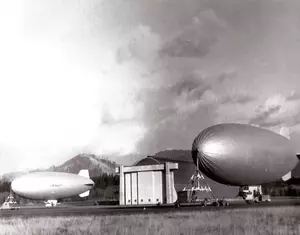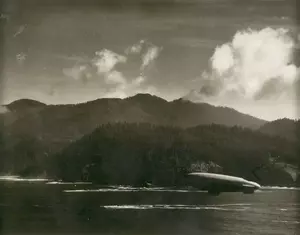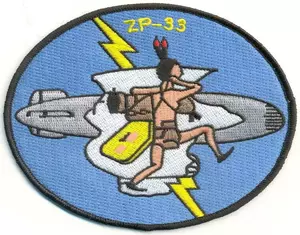Also known as Blimp Squadron 33, Blimpron 33, Hedron 33, or ZP-33, the squadron operated from Tillamook, North Bend, and Astoria, Oregon; Shelton and Quillayute, Washington; and Del Mar and Eureka, California between December 1942 to September 1945.

Lieutenant Commander Emmett J. Sullivan was the first Commanding Officer of ZP-33 from December 10, 1942 until March 14, 1944 when he was promoted to Officer-in-Charge, Fleet Airships Pacific Training Unit (FAPTU) based at Naval Facility Del Mar, CA. Because of his LTA knowledge and experience with K-ships, magnetic anomaly detection (MAD), and crew training, in May of 1944, Emmett Sullivan was named the Squadron Commander of ZP-14 which made the first transatlantic crossings by non-rigid airships (K-ships), conducted anti-submarine warfare (ASW) at the Straits of Gibraltar, and performed mine-spotting, minesweeping, and escort missions in the Mediterranean Theater.
Sullivan chose another ZP-33 officer, Lt. E. W. Steffen as Operations Officer for ZP-14. Back at Tillamook, Lt. Cmdr. William R. Peeler succeeded Sullivan as Commanding Officer of ZP-33 on March 14, 1944.

The two USN photographs of K-87 shown above were taken at Quillayute, Washington. The date was possibly September 8, 1944 when, according to the ZP-33 Squadron Diary, “pilot Lt(jg) Suhr, took 61 of the personnel from NAS Quillayute on short flights aboard the K-87.”
Photos
Click or touch the arrows to see photos.
Wreck of the K-71 near Long Beach, WA on November 20, 1943
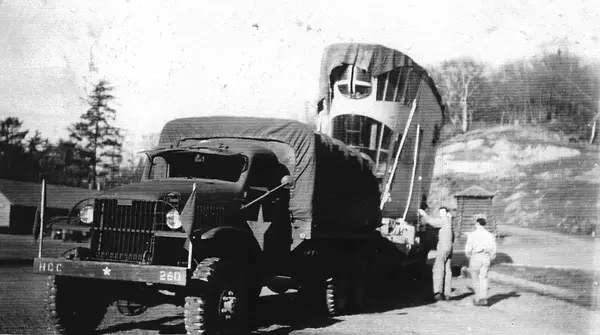
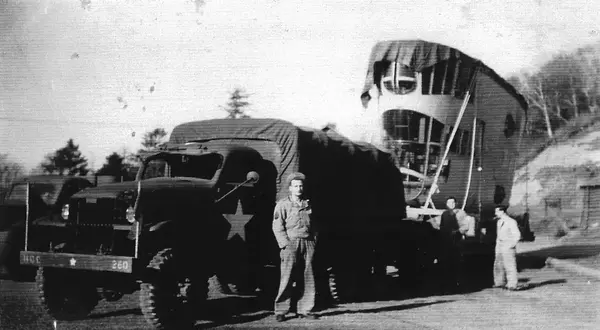
Squadron Diary History - Airship Squadron Thirty Three November 20, 1943 - Unable to reach her home base or auxiliary bases due to heavy weather and lack of fuel, the K-71 made a forced landing on the beach 2 miles north of Long Beach, Washington, to an emergency landing party. After approximately 10 minutes on the ground, the ship became unmanageable because of strong gusts of wind, which resulted in the starboard propeller hitting the sand. Both engines were out and the ship ripped to prevent it from being blown to sea.
Crash of K-39 at Quillayute, WA on January 4, 1944
Squadron Diary History - Airship Squadron Thirty Three, January 4, 1944: The K-39 landed at Quillayute, Washington, to an emergency landing party. While attempts were being made to mast the airship, shifting winds caused it to roll and kite, bending both propellors and necessitating cutting both engines. Heavy gusts then tore the lines from the handling party and the hauling-in line from the winch of the mast. The airship became airborne, out of control, and ripped. It was a total loss.
Crash of K-111 on Santa Catalina Island on October 17, 1944
On the evening of October 17, 1944, K-111 had departed their base at Santa Ana, and were on a training flight off the coast of California in the area of the Channel Islands. The airship was assigned to antisubmarine duty, patrolling for Japanese submarines.
A navigation error and bad weather put it over Santa Catalina Island, CA at under 1500 feet. It collided with the ground near East Peak (approximately 33.3197 -118.341) at 11:30 PM. A survivor says all crew escaped the gondola, but lingered near the airship too long. When K-111's fuel tanks exploded, five of the crew were killed, and one died the next day.
One of the survivors was Machinists Mate Ernst Jarke of Nebraska. He says he saw Captain Thomas Ralston incinerated immediately. Ernst was also caught in the explosion but he ran away and suffered severe burns. He was taken to the Maritime hospital in Avalon, where he spent the next eight months. He passed away in 2003 at the age of 86.
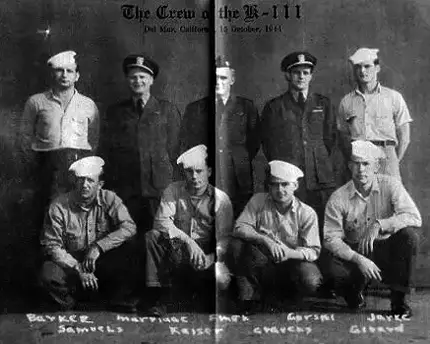
Those killed were:
| Preston L Girard | first row (kneeling) right-most |
| Edward T Gorski | second row (standing fourth from left |
| Gordon F Kaiser | first row (kneeling) second from left |
| Wallis H Marriage | second row (standing) second from left |
| Thomas H Ralston | not in photo |
| Thomas R Smith | second row (standing) third from left |
K‑33 and K‑39 assist L. Ron Hubbard in PC 815
On May 19, 1943, L. Ron Hubbard, commanding PC-461-class submarine chaser USS PC-815, spent over two days searching for and depth charging a Japanese submarine off of Cape Lookout, Oregon. The crews of K‑33 and K‑39 did not detect a sub. The U.S. Navy later determined that the submarine didn't exist.
Hangar A Fire
On August 22, 1992, a fire destroyed Hanger A at the Tillamook Naval Air Station. The hanger was used for storage of, among other things, 135,000 bales (7,600 tons) of dry straw. It's unknown how the fire started. The hanger was totally destroyed.
Read the ZP-33 Squadron Diary (this is a large 16 MB pdf file).
The photographs on this page were provided by Christian Gurling at the Tillamook Air Museum.

